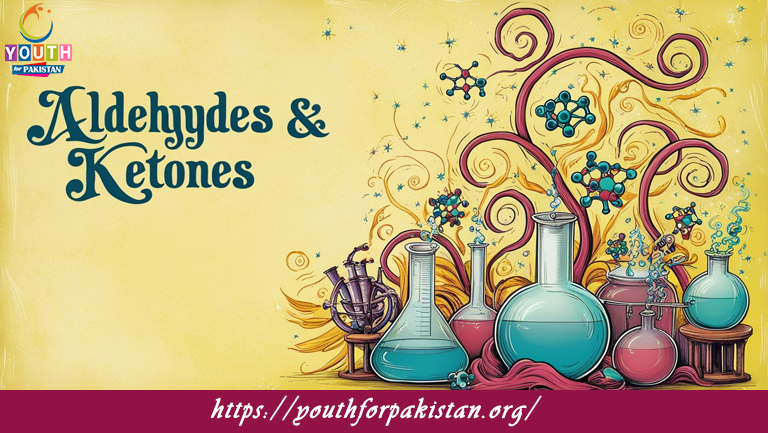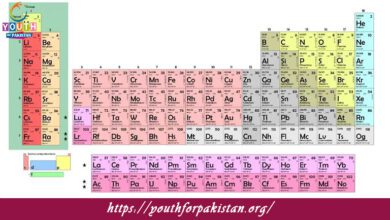Aldehydes & Ketones Preparation MDCAT Quiz with Answers

Aldehydes & Ketones Preparation MDCAT Quiz is one of the most important topics in organic chemistry for MDCAT students, as it comprises different methods employed in the synthesis of these compounds. Aldehydes and ketones are crucial intermediates in organic synthesis and participate in a variety of reactions. It is very essential to understand how these compounds are prepared in order to answer practical and theoretical questions in the MDCAT exam.
Preparation of Aldehydes: Oxidation of Primary Alcohols: The most common methods for the preparation of aldehydes are through the oxidation of primary alcohols. In this reaction, primary alcohols are oxidized using reagents such as potassium dichromate (K₂Cr₂O₇) or Jones reagent (CrO₃) to form aldehydes. For example, ethanol can be oxidized to form ethanal (acetaldehyde).
Partial Oxidation of Alkanes: Aldehydes can also be prepared by the partial oxidation of alkanes with oxidizing agents such as oxygen or chlorine. This process enables the terminal carbon of the alkane to be oxidized to an aldehyde.
Reduction of Acids: Carboxylic acids can be reduced to aldehydes by selective reducing agents, such as diborane (B₂H₆). This method is useful in the preparation of aldehydes without further reduction to alcohols.
Preparation of Ketones: Oxidation of Secondary Alcohols: Secondary alcohols can be oxidized to form ketones. Oxidizing agents such as potassium dichromate (K₂Cr₂O₇) or potassium permanganate (KMnO₄) are commonly used. For example, propan-2-ol can be oxidized to form propanone (acetone).
Friedel-Crafts Acylation: Ketones can be synthesized by the Friedel-Crafts acylation reaction, where an aromatic compound reacts with an acyl chloride (RCOCl) in the presence of a Lewis acid catalyst such as AlCl₃ to form an aryl ketone.
Hydrolysis of Nitriles: Nitriles (RC≡N) can be hydrolyzed to form ketones. The hydrolysis is usually done in dilute acid or base, and the resulting ketone after cleavage and hydration of the nitrile is formed.
Reactions Involving Aldehydes and Ketones: Aldehydes and ketones, once prepared, can undergo a great variety of nucleophilic addition reactions, including the Grignard reactions, addition of alcohols to hemiketals or hemiacetals, and condensation reactions such as the aldol condensation.
Quiz: Test Your Knowledge of Aldehydes & Ketones Preparation
Our MDCAT Quiz on Aldehydes and Ketones will help you evaluate your understanding of the different ways that aldehydes and ketones are synthesized. The quiz takes you through a variety of question types on the oxidation reactions, Friedel-Crafts acylation, and hydrolysis of nitriles, among others, preparing you adequately for the MDCAT exam.
Free Flashcard: Important Tips for Preparing Aldehydes & Ketones
Our Free Flashcard set on aldehydes and ketones preparation provides a quick reference guide to the most common preparation methods, including oxidation of alcohols and nitriles, and Friedel-Crafts acylation. These flashcards are a great tool for reinforcing your knowledge and preparing for the MDCAT exam.
Experience the real exam environment with our expertly designed collection of over 25,000 MCQs MDCAT Mock Tests.






